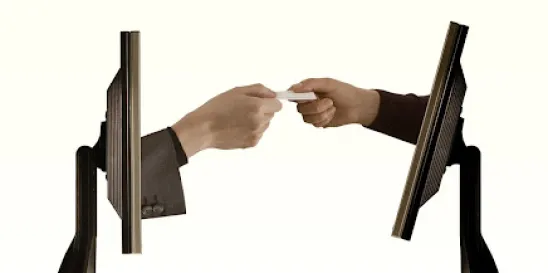In an era dominated by digitalization, the continued relevance of lawyer business cards as a networking tool may seem paradoxical. However, these tangible cards still hold significant sway for attorneys navigating the complex terrain of professional relationships. It bridges the gap between the virtual and physical realms, reinforcing the significance of actual connections in law practice.
This post will discuss the relevance and necessity of lawyer business cards, the types of business cards, ethical considerations in attorney marketing, and suggestions for designing your own card.
Why Do Attorneys Need Business Cards in 2023?
Despite the omnipresence of digital platforms, lawyer business cards remain effective promoters of law firms and personal branding. They serve as an invaluable extension of your professional identity.
Personal connections play a pivotal role in the intricate world of legal practice. Handing over a well-crafted business card fosters a tangible connection that digital interactions often lack. It’s a tactile reminder of your encounter, making it easier for potential collaborators or clients to recall and reach out to you.
Your business card can be the first step in establishing trust with potential clients. It encapsulates vital information, showcasing your expertise and specialization succinctly. Clients appreciate the convenience of having your contact details readily available when they need legal assistance.
Lawyer business cards should be considered complementary tools, not standalone assets. When integrated into a comprehensive law firm marketing plan, they enhance your brand’s visibility. Pairing them with a well-designed website and logo creates a cohesive and memorable impression in the minds of your target audience.
Standard Lawyer Business Cards vs. vCards
In professional networking for attorneys, the choice between standard lawyer business cards and vCards is a defining one. Each option has advantages and disadvantages, catering to different preferences and needs. We will review and compare the benefits and disadvantages of each option.
Standard Lawyer Business Cards
These time-honored networking staples offer a tangible connection in a digital age. A standard business card typically includes your name, law firm name, position, and essential contact information.
Holding a physical card fosters a memorable and tangible connection. Standard lawyer business cards convey a sense of tradition and professionalism. Also, a standard business card does not need technology; anyone can receive and keep a card. Some disadvantages of having a standard business card include space constraints that restrict the information you can provide.
vCards can contain extensive details, including links to websites and social profiles.
vCards
In contrast, vCards represent the digital evolution of business cards. These electronic cards are shared online and offer a more interactive networking experience. vCards can contain extensive details, including links to a website and social profiles. A vCard is easily exchangeable via email or messaging apps. It also reduces paper usage and environmental impact. Some potential drawbacks include the dependence on the internet. Having a vCard requires a compatible device and internet connection. vCards also lack the physical presence of a traditional card.
Ethical Considerations for Business Cards
Ethical considerations take center stage when creating and utilizing business cards in the legal profession. You must distinguish between effective promotion and adherence to professional standards.
Honest Labeling
According to the American Bar Association’s ABA rule 7.2, lawyers must represent themselves honestly and precisely on their business cards. There are strict guidelines in place to protect the public. If you identify as a specialist or expert, you must be certified, and the certifying organization must be listed on your business card. Clear and accurate representation of your name, law firm, and position is essential.
Avoid Using Marketing Jargon
Honesty extends to law firm marketing, too. Clarity and transparency are vital when advertising your services. It would be best to shun marketing jargon that may obfuscate rather than elucidate. Honesty and precision, as stipulated by ethical guidelines, must be reflected in the information presented on your card. Clients, both current and potential, should encounter a true representation of the attorney and their services.
Include Any Requirements
Make sure you check your local governance and state bars to make sure you remain in ethical compliance. You may need to add disclaimers or statements to safeguard yourself, protect the client, and establish proper expectations.
Concise Office Location
Your office location on the business card must be conveyed with utmost clarity. Vagueness or ambiguity regarding the office’s whereabouts can be seen as deceptive. Ensuring that the office location is concise and precise aligns with ethical standards and empowers clients to make informed decisions.
What Should Be Included on Lawyer Business Cards?
A well-structured lawyer business card is your emblem of professionalism and a potent tool for making lasting connections.
Law Firm’s Logo
The logo is a visual symbol of your Firm’s identity and encapsulates your brand’s essence. It wields the power of recognition and association, making it a cornerstone of your business card.
Tagline or Mission Statement
A succinct statement of purpose can set you apart, offering a glimpse into your Firm’s ethos and specialization. It adds depth to your card, leaving a lasting impression.
Contact Information
The lifeline of your business card is your contact information. Include your email, phone number, and social networking profile links. If multiple attorneys work at your firm, ensure at least one attorney is identified on the card. Ensure accuracy; errors can be detrimental to your credibility.
Firm Name
The bedrock of your lawyer business card is your Firm’s name. It should be prominent, clear, and aligned with your branding.
Call to Action
In the intricate world of legal practice, where trust and credibility reign supreme, an ethically sound business card becomes not just a networking tool but a symbol of an attorney’s commitment to professional integrity. It embodies the essence of the legal profession: clarity, honesty, and unwavering ethical conduct. There are many options to help you properly market your firm and extend your presence into the world. PracticePanther has compiled a list of marketing tools that will aid you on your journey to make your mark effectively, efficiently, and uniquely within the legal landscape.
Here is a final thought as you prepare to design your lawyer business cards.
How to Design Lawyer Business Cards
Designing a lawyer’s business card is akin to sculpting a legal identity on a palm-sized canvas. To ensure your card leaves a lasting impression, consider these vital design tips:
- Keep it clean and readable. Opt for a clean and uncluttered layout that allows essential information to shine. Choose legible fonts and maintain a font size that ensures ease of reading. Also, use a simple and professional color palette, avoiding distracting or overly vibrant hues.
- Branding alignment to the firm’s unique branding. Ensure your card is an extension of your law firm’s brand identity. Consistency is key. Incorporate the firm’s logo, color scheme, and tagline to establish a cohesive visual identity.
- Size and shapes: The most commonly used are 88 x 55mm. Adhering to standard sizing conventions (88 x 55 mm) ensures compatibility with business card holders and wallets. While classic shapes are commonly used, consider unique die-cut shapes for added visual appeal.
- Use design tools such as Canva, Figma, or external business card design websites for the design process. Leverage user-friendly design tools like Canva and Figma for DIY design. Alternatively, collaborate with professional designers or utilize external business card design websites for tailored results.
Incorporating these design principles into your lawyer business card creation process will elevate your professional image and facilitate impactful networking. Remember, your business card is often the first impression you make in the legal world, so make it count!




 />i
/>i
